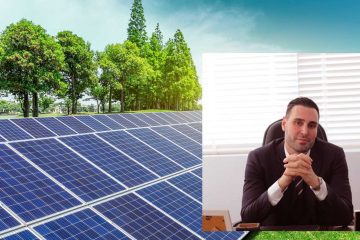There has been a significant shift towards embracing renewable energy sources in recent years. The world is grappling with the challenges of climate change. Among these sources, solar power has emerged as a leading contender. It offers numerous advantages for businesses aiming to reduce their carbon footprint and lower energy costs. With advancements in technology and increased awareness of environmental sustainability, the future of solar power in the professional world looks brighter.
The Rise of Solar Power
Solar power has witnessed remarkable growth in the professional world over the past decade. Falling costs of solar panels, coupled with generous government incentives, have encouraged businesses of all sizes to adopt this clean and renewable energy source. According to the Solar Energy Industries Association (SEIA), in 2021 alone, the United States added a record-breaking 30 gigawatts of solar power capacity, demonstrating the increasing demand for solar energy in the commercial sector.
Environmental Sustainability
One of the key drivers behind the widespread adoption of solar power is its positive environmental impact. Traditional energy sources like fossil fuels contribute to greenhouse gas emissions and air pollution. On the other hand, solar power generates electricity without producing harmful emissions. By transitioning to solar energy, businesses can significantly reduce their carbon footprint and play a vital role in mitigating climate change.
Economic Benefits
Besides its environmental advantages, solar power offers businesses substantial economic benefits. As the cost of solar panels continues to decline, organizations can lower their energy expenses by producing their electricity. Moreover, solar power systems often have a long lifespan, requiring minimal maintenance. This long-term financial stability can provide businesses with predictable energy costs, shielding them from fluctuations in the price of traditional energy sources.
Technological Advancements
The future of solar power in the professional world is promising, thanks to ongoing technological advancements. Researchers and engineers continuously develop innovative solar technologies, such as flexible solar panels, windows, and solar-powered charging stations. These advancements improve the efficiency and reliability of solar systems and expand their range of applications. In the coming years, we can expect to see solar power integrated into more commercial buildings, vehicles, and even wearable devices.
Grid Independence
Solar power empowers businesses to become less reliant on the traditional power grid. By installing solar panels on their premises, companies can generate electricity, reducing their dependence on external energy suppliers. This grid independence provides businesses energy security and stability, particularly during power outages or disruptions. It also enables them to achieve self-sufficiency, enhancing their resilience in unforeseen circumstances.
Government Support
Government policies and incentives have played a crucial role in promoting solar power adoption in the professional world. Many countries provide tax credits, grants, and subsidies to encourage businesses to invest in solar energy systems. These incentives offset the initial installation costs and facilitate a quicker return on investment. With governments worldwide recognizing the importance of renewable energy, these supportive policies will continue to foster the growth of solar power in the business sector.
Solar power has emerged as a frontrunner in the professional world’s pursuit of sustainable practices. Solar energy is set to revolutionize how businesses operate with its environmental benefits, economic advantages, technological advancements, and government support. As more organizations recognize the long-term benefits of solar power, we can expect a widespread transition towards clean and renewable energy. Embracing solar power is not just a responsible choice for businesses but a crucial step toward creating a greener and more sustainable future for all.



